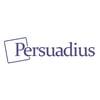The Dunning-Kruger Effect is a fascinating cognitive bias that can have significant implications for the justice system, particularly when it comes to juries. This effect refers to the tendency of individuals to overestimate their own abilities and knowledge in a particular area, leading them to believe that they are more competent than they actually are.
In the context of juries, the Dunning-Kruger Effect can be particularly problematic. Jurors who are affected by this bias may believe that they have a deep understanding of the case and the legal principles involved, even when they do not. This can result in them making decisions based on incomplete or inaccurate information, which can have serious consequences for the individuals involved in the trial.
Fortunately, there are strategies that can be employed to minimize the impact of the Dunning-Kruger Effect on juries. One such strategy is education. By providing jurors with the necessary information and knowledge to make informed decisions, they can be better equipped to recognize when they are influenced by this bias. This can involve providing jurors with comprehensive information about the legal framework, the rules of evidence, and the specific details of the case.
Additionally, providing jurors with training on how to evaluate evidence and make decisions based on that evidence can also be highly beneficial. This training can help jurors to develop critical thinking skills and to approach the evidence in an objective and unbiased manner. By empowering jurors with the tools they need to make informed decisions, the impact of the Dunning-Kruger Effect can be significantly reduced.
Another effective strategy for minimizing the impact of the Dunning-Kruger Effect on juries is the use of expert witnesses. Expert witnesses are individuals who possess specialized knowledge and expertise in a particular field relevant to the case. These witnesses can provide jurors with accurate and reliable information, helping them to make informed decisions based on the best available evidence. Expert witnesses can also help to counteract any biases that may be present among the jurors by providing an objective perspective and offering insights that the jurors may not have considered.
In cases involving complex technical or scientific evidence, expert witnesses can be especially valuable. These witnesses can help jurors understand the intricacies of the evidence and the scientific principles at play, making it easier for them to evaluate the evidence accurately. By ensuring that jurors have a clear and comprehensive understanding of the evidence, the potential impact of the Dunning-Kruger Effect can be mitigated.
Finally, it is crucial for judges to be aware of the Dunning-Kruger Effect and take appropriate steps to minimize its impact on juries. Judges can provide clear instructions to jurors on their role in the trial and the specific factors they should consider when making their decision. By clarifying the expectations and responsibilities of the jurors, judges can help ensure that jurors approach their decision-making process with a clear and unbiased mindset.
In addition, judges can play a crucial role in ensuring that the evidence presented in the trial is presented in a way that is clear, concise, and easily understandable. This can involve simplifying complex concepts, using visual aids, and providing explanations that are accessible to jurors of varying backgrounds and levels of knowledge. By presenting the evidence in a manner that is easily comprehensible, judges can help minimize any confusion or misunderstandings that may arise among the jurors.
In conclusion, the Dunning-Kruger Effect is a cognitive bias that can impact the ability of juries to make informed decisions. However, by implementing strategies such as education, the use of expert witnesses, and clear instructions from judges, the impact of this bias can be minimized. By ensuring that jurors have the necessary knowledge and tools to make informed decisions, we can uphold the principles of justice and ensure that verdicts are based on accurate and complete information.
Other Persuadius/A2L Consulting articles and resources related to jury selection, voir dire, mock trials and jury consulting:
- When Smart Ain’t So Smart - Cognitive Bias, Experts and Jurors
- 5 Secrets for Trying Cases in SDNY
- 5 Questions to Always Ask in Voir Dire
- Is Hiring a Jury Consultant Really Worth It?
- 15 Things Everyone Should Know About Jury Selection
- 6 Types of Jurors That Can Fly Under the Radar
- 10 Signs of a great jury questionnaire
- 10 Ways to Lose Voir Dire
- Do I Need a Local Jury Consultant? Maybe. Here are 7 Considerations.
- Jury Selection: So Few Strikes, So Much at Stake
- The Voir Dire Handbook | Free Download | A2L Consulting
- Jury Selection and Voir Dire: Don't Ask, Don't Know
- 7 Tips to Take “Dire” out of Voir Dire
- Jury Selection Experts . . . True or False?
- A2L Voted Best Jury Consultants by LegalTimes






Leave a Comment